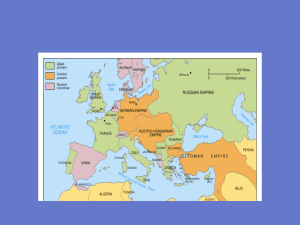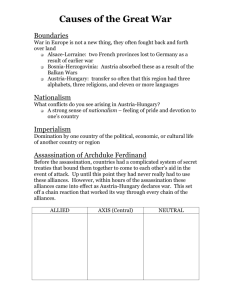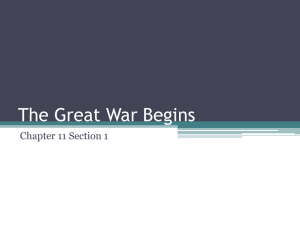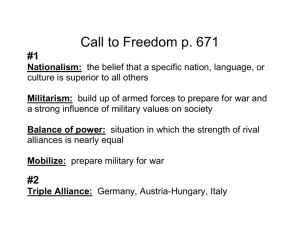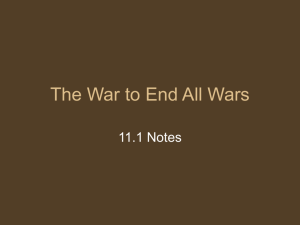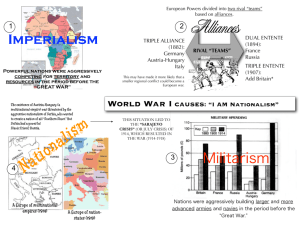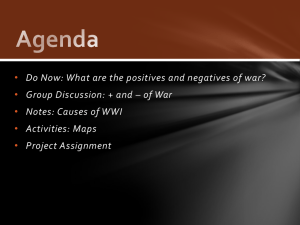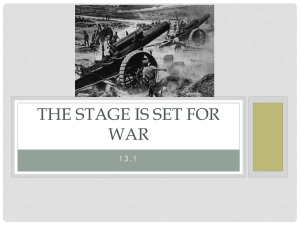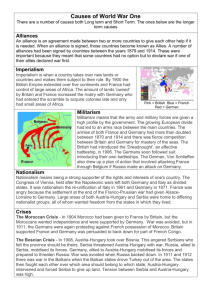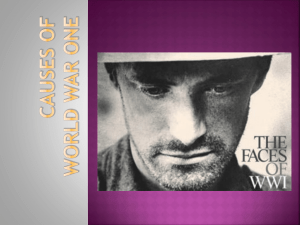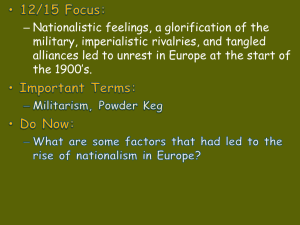Causes of World War I Student
advertisement
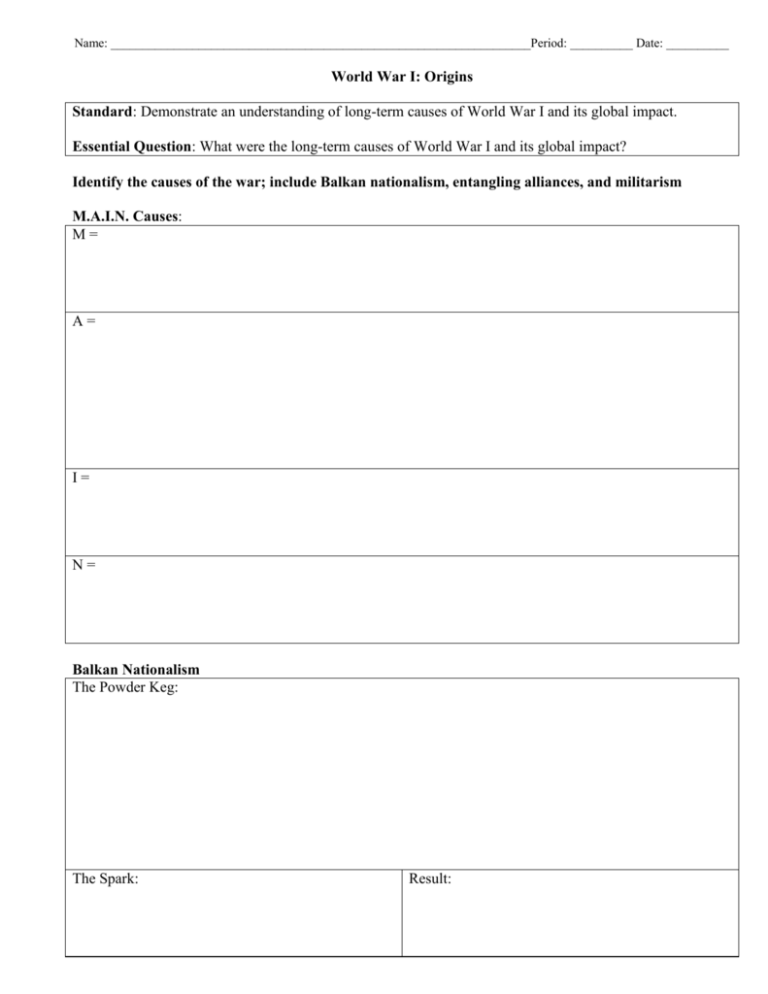
Name: ___________________________________________________________________Period: __________ Date: __________ World War I: Origins Standard: Demonstrate an understanding of long-term causes of World War I and its global impact. Essential Question: What were the long-term causes of World War I and its global impact? Identify the causes of the war; include Balkan nationalism, entangling alliances, and militarism M.A.I.N. Causes: M= A= I= N= Balkan Nationalism The Powder Keg: The Spark: Result: Essential Question: What were the long-term causes of World War I and its global impact? Entangled Alliances Actions: Central Powers: Allied Powers: Schlieffen Plan Description: Step 1: Step 2: Could this war been prevented? Explain. Results: World War I: Origins Standard: Demonstrate an understanding of long-term causes of World War I and its global impact. Essential Question: What were the long-term causes of World War I and its global impact? Identify the causes of the war; include Balkan nationalism, entangling alliances, and militarism M.A.I.N. Causes: M = Militarism the policy of glorifying military power and keeping an army prepared for war led to a European arms race A = Alliance System Prussian wars united Germany. GER was fearful of France so they allied with Austria-Hungary and Italy- Triple Alliance Germany then decided to build up its navy. This alarmed Britain. So they formed the Triple Entente- Britain, France, and Russia. I = Imperialism Policy in which a strong nation seeks to dominate weaker ones. In the late 1800s and early 1900s imperialism took place in Africa Creates competition between European powers N = Nationalism Deep devotion to one’s country Created rivalry between the countries of Europe Countries were in competition for materials and markets Balkan Nationalism The Powder Keg: Ottoman Empire in rapid decline losses influence in the Balkans New nations form Spread of Nationalism – Serbia (slavic) desired to absorb all the Slavic community in the Balkans – Supported by Russia – Not supported by Austria-Hungary did not support the idea because of fear of stirring rebellion among its Slavic population 1908 Austria-Hungary annexed Bosnia and Herzegovina – Two Balkan areas with large Slavic population Tensions grow between Serbia and Austria-Hungary The Spark: Result: Austrian leader Archduke Franz Ferdinand and Austria presented Serbia with an ultimatum. his wife were shot in June 1914 by Gavrilo Serbia agreed to most of the demands, but Princip Austria-Hungary would not negotiate. Austria decided to punish Serbia Declared war in July 1914 Essential Question: What were the long-term causes of World War I and its global impact? Entangled Alliances Play Out Actions: Austria-Hungary declares war on Serbia Russia mobilizes army along the Austrian and German border Germany declares war on Russia and France Great Britain declares war on Germany Italy switches sides from the Triple Alliance to the Triple Entente Ottoman Empire and Bulgaria join Germany and Austria-Hungary Central Powers: Allied Powers: Germany France Austria-Hungary Great Britain Ottoman Empire Russia Bulgaria Italy Japan United States (later) Schlieffen Plan Description: Germany’s plan to fight a two-front war (the West against France and Britain and the East against Russia) Step 1: quick defeat of France on the Western Front Results: while the larger, less industrialized nation(Russia) by September of 1914 the Germans were on the still was mobilizing outskirts of Paris The French were able to defeat the Germans at Step 2: after victory over the French, Germany the Battle of the Marne would then attack Russia and defeat them halted the German advance Germany had to abandon the Schlieffen Plan and fight a two front war when Russia invaded Germany
